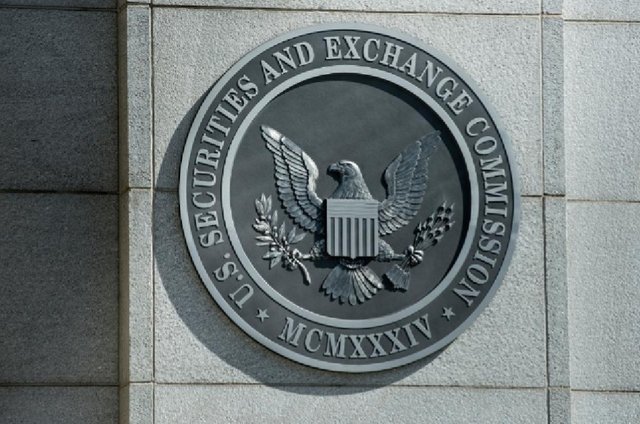SEC Cyber Chief Puts A New Type Of Cryptocurrency Exchange On Notice

Cryptographic money trades, be cautioned. There's no out-advancing the administrative reach of the U.S. Securities and Exchange Commission.
Elucidating a declaration yesterday that the SEC is amidst its first-historically speaking body of evidence against a cryptographic money trade running on the ethereum blockchain, Robert Cohen, the head of the SEC's recently made digital unit, only revealed to Forbes that utilizing any blockchain to make a trade without focal tasks doesn't expel the first maker's obligation.
As comparable decentralized trades are being propelled no sweat and recurrence, the notice indicates how genuine the SEC is tied in with subduing the cryptographic money Wild West and the semantics used to support it.
"The emphasis isn't on the name you put on something or the innovation you're utilizing," says Cohen. "The emphasis is on the capacity, and what the stage is doing. Regardless of whether it's decentralized or not, whether it's on a keen contract or not, what makes a difference is it's a trade."
While conventional, concentrated trades like Coinbase, or even Nasdaq, are controlled by people, this new type of decentralized trades keeps running on self-executing code. Rather than filling in as a broker interfacing purchasers and dealers, these decentralized trades associate individuals specifically utilizing the code, otherwise called a keen contract.
In any case, as indicated by Cohen, the people behind that code stay mindful. It's eminent that the SEC's charges yesterday were not against the trade but rather the individual, Zachary Coburn, author of the unlicensed decentralized EtherDelta token trade. The trade, which is as yet operational notwithstanding the way that, as indicated by the SEC, Coburn is being agreeable, has just helped clients execute 3.6 million requests and took its latest request at 3:07 pm ET on Friday, November 9.
Altogether, Coburn consented to pay a $300,000 ejection, $13,000 in prejudgment intrigue and a $75,000 punishment, however he didn't admit to or deny the SEC discoveries. In its official explanation, the SEC depicted Coburn as "agreeable." Importantly, "all" of the exchanges led on the stage happened after July 25, 2017, when the SEC distributed its decisions on the original DAO examination.
outsider's record.
While the SEC didn't fine The DAO's makers, it created the digital unit that is researching EtherDelta. The digital unit documented its first charges against a blockchain organization in December 2017, for issues identified with the issuance of an ICO. At that point, in September 2018, charges were documented against a crypto-resource subsidize supervisor and a crypto specialist merchant. Be that as it may, yesterday's charges were the first against a crypto trade and demonstrate the office is raising its endeavors.
Since the cataclysmic disappointment of The DAO, which so profoundly split ethereum clients that it brought about the formation of a totally new cryptographic money called Ethereum Classic, the decentralized trade business has turned out to be progressively refined and streamlined.
In May 2018 authorized digital currency trade Coinbase acquired Paradex, a decentralized trade fueled by 0x, a stage intended to streamline the production of cryptographic money trades without a solitary purpose of disappointment. In August 2017 0x brought $24 million up in an underlying coin offering (ICO) in which the general population could buy tokens utilized by the trade.
From that point forward, various other decentralized trades have propelled on the 0x stage, the most unmistakable of which is Radar Relay, which brought $10 million up in customary investment from Blockchain Capital and others. Thus, decentralized resource director Melonport is building a self-sufficient framework planned to be completely sent in February 2019.
While Cohen's remarks make it obvious the SEC means to guarantee that trades working together in the United States are agreeable, what is less clear is the manner by which the controller may deal with decentralized trades with less helpful or unknown makers.
By their exceptionally nature, blockchain-based trades are about difficult to close down. While online access to incorporated servers can be repudiated, another rush of decentralized servers, space suppliers and more are ending up progressively well known. Before long, even customary methods for authorization could turn out to be more troublesome.
Source
There is reasonable evidence that this article has been spun, rewritten, or reworded. Repeatedly posting such content is considered spam.
Spam is discouraged by the community, and may result in action from the cheetah bot.
More information and tips on sharing content.
If you believe this comment is in error, please contact us in #disputes on Discord